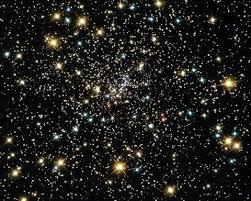 LAFSF News:
LAFSF News:The Los Alamos Faith & Science Forum is holding a third summer series on the topic “What Makes Us Human?”, continuing on June 15 at Kelly Hall at Trinity on the Hill Episcopal Church. Dinner will be provided at 6 p.m., with a presentation at 6:30 p.m., and discussion at 7 p.m., ending around 8 p.m.
Our hope is that these lectures and discussions will be interesting and accessible to all members of the community interested in faith and science, no matter what religion or scientific background. Talks will be aimed at a general audience. All are welcome. Follow our blog here.
Wednesday, June 15: Human Genetics: To be human is to have unique genetics and genetic expression:
Our genetic code, DNA, is one of the most important aspects of what makes us human.
Our genome illustrates the complex building blocks used to create all kinds of different forms of life. A video presentation will be used to illustrate how our genes relate to other animals and plants and how different forms of life have developed different chromosome structure. For example, apes have 48 chromosomes while humans have 46. Chimpanzees have genes most similar to human beings.
For example, until recently research papers have suggested that their DNA is only about 1.2% different from a human’s. Recent research analysis suggests that it may be more like 4 to 5% and that the amount of the difference depends on the type of analysis done and the inherent assumptions made when
doing the comparison. A 5% difference in our DNA would amount to 150,000,000 differences between the human and chimpanzee. Only about 5% of human DNA is composed of genes, the basic blueprint. The rest of the DNA, called noncoding DNA, is not well understood and is an area of intense research.
There are structural and chemical changes to humans that do not affect the human DNA. For example environmental effects such as work stress, cruelty during childhood, chemical exposure can cause such effects. This is also an area of intense research called epigenetics. I’ll end my talk describing the area of nutritional epigenetics.
About presenter:
Glenn Magelssen has a PhD from the University of Colorado. His scientific research has included solar physics, laser and ion beam fusion, neutral nets, code development and stockpile stewardship. He has studied theology most of his life and taken a four year course called EFM from the University of the South on Old and New Testament, Christian history and Christian Theology. He has been influenced by many authors including Martin Luther, C. S. Lewis, Joseph Sitler, Walter Wangerin, Richard Feynman, John Steinbeck, Clarence Jordan and Paul Tournier.

